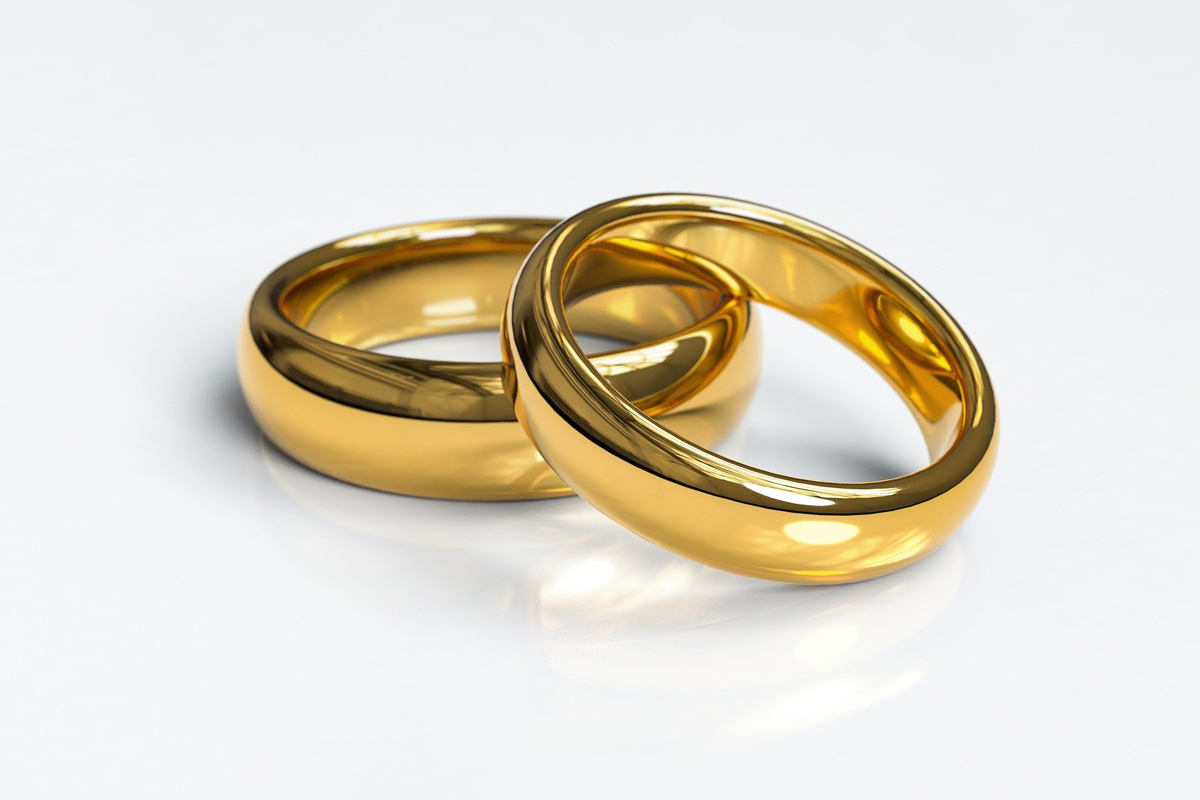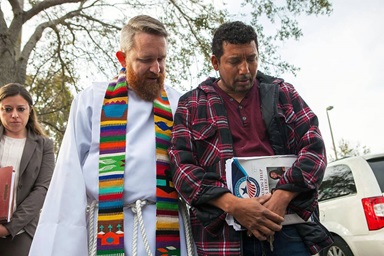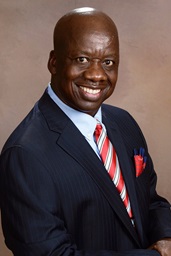The Rev. Eric McKinney already has faced suspension for performing a same-sex wedding. If he does so again, he knows he likely would lose his United Methodist clergy credentials.
The retired Texas pastor said that’s a risk he is willing to take.
“There are a lot more important things than credentials,” he said.
McKinney is among more than 500 United Methodist clergy who have agreed to officiate at the Christian weddings of LGBTQ couples, despite the denomination’s ban on such unions and stronger enforcement measures that took effect in January.
Organizing the effort is the new United Methodist group Marriage Rites. The group seeks to make such services available to all Christian couples who have prayerfully considered their vows and participated in pre-marital counseling.
It is part of a larger Resist Harm campaign to take a stand against the denomination’s LGBTQ restrictions. Much of that campaign does not violate the Book of Discipline, The United Methodist Church’s policy book. Marriage Rites has the potential to lead to church charges against clergy, though it also offers guidance for extending pastoral care and remaining within the Discipline.
One of the group’s main organizers is the Rev. Rebekah Miles, an ordained elder in the Arkansas Conference and professor of ethics and practical theology at Southern Methodist University’s Perkins School of Theology.
“I have taught United Methodist doctrine for more than 25 years now, and I always tell the students — almost all of whom are heading toward ordination in The United Methodist Church — that you are fixing to make a covenant. You need to be sure you are willing to abide by the Book of Discipline,” she said.
“Now, I think the laws of the Book of Discipline are so distorted that I actually have an obligation to disobey,” she said.
United Methodists have publicly protested the denomination’s marriage restrictions before.
For example, Reconciling Ministries Network — an advocacy group for LGBTQ equality — invited clergy and congregations to sign on to Altars for All to show solidarity with LGBTQ people. Among those listed were United Methodist congregations that were willing to hold weddings and those that had halted all weddings until church rules allowed all committed adult couples to wed.
What makes the Marriage Rites effort different is that it aims to connect couples with clergy or United Methodist civic officials who can perform weddings. In addition, the group’s leaders come from the denomination’s South Central and Southeastern jurisdictions — U.S. regions where restrictions related to LGBTQ ministry have faced little pushback until recently.
The effort, which went public Jan. 22, has drawn more clergy than Miles expected — though so far, no weddings are scheduled.
What has changed the dynamic, Miles said, is the special 2019 General Conference’s passage — by a 438-384 vote — of the Traditional Plan that strengthened the church’s prohibitions against same-sex weddings and “self-avowed practicing” gay clergy. General Conference is the church’s top lawmaking assembly, bringing together delegates from around the world every four years.
Among the changes was a new mandatory penalty for clergy found guilty of performing a same-sex wedding — one year’s suspension without pay for the first offense and loss of credentials for the second. Miles said that no other violation of church law — including abuse, adultery or embezzlement — carries a mandatory penalty. The new measures took effect Jan. 1 in the United States.
“The Traditional Plan created a moral obligation for a lot of us to do something we would never have done before,” Miles said.
The “Protocol of Reconciliation & Grace Through Separation,” a proposal from traditionalists, centrists and progressives that will be up to the 2020 General Conference to decide, urges an abeyance on processing complaints against same-sex weddings and gay clergy. Miles noted that the protocol makes no mention of halting same-sex weddings.
She also pointed out that the abeyance is not binding on any but the protocol signers, and multiple bishops have long indicated a commitment to process complaints under the Discipline as written.
Miles said the new rules require clergy who do not have to rely on church appointments for financial support to step up to protect active clergy who do. About a third of the clergy who signed up are retired, Miles said. Another group are, like her, in extension ministry — that is, they work outside the local church.
McKinney, 69, is a member of the Central Texas Conference, where he expects the Traditional Plan to be enforced.
Like a number of Marriage Rites signers, his views on homosexuality have changed over the years. As a delegate to the 2000 General Conference, he voted to maintain the teaching that the practice of homosexuality “is incompatible with Christian teaching,” a position the denomination has taken since 1972. However, he said one of his daughters expressed disappointment in his vote.
“She said, ‘Don’t you know you have gay and lesbian leaders in the church?’” McKinney recalled. That got him reflecting.
By 2015, the same year the U.S. Supreme Court legalized same-sex marriage across the country, he officiated at the United Methodist wedding of two women. One of those women is a lifelong United Methodist and the daughter of longtime friends.
He was suspended after a complaint and knows that his credentials would be revoked with a second offence.
“I really believe from the depth of my being that this is what God would want me to do,” McKinney said.
Even for retired clergy, the revocation of credentials could bring consequences beyond the loss of authority to administer sacraments. Former clergy would keep the pensions they have paid into but would lose access to retiree health benefits offered by their conferences.
Still, that has not deterred the Revs. Bob and Judy Holloway, both retired Central Texas clergy who signed on to Marriage Rites. Bob Holloway is an elder and Judy Holloway a deacon.
“Both of us feel and believe in our hearts that we are called to minister to every person and to be a pastoral presence to that person,” Bob Holloway, 72, said.
The Rev. Ed Matthews, a retired Arkansas Conference pastor and former missionary to Congo, said that at age 85, he is “frail, rode hard and put up wet.” Still, he wanted to join the effort.
“Like most things worthwhile, there is always a risk involved,” he said.
The Rev. Harlan Beckley, an emeritus religion professor at Washington & Lee University in Lexington, Virginia, said he sees gay marriage as a matter of justice.
Nevertheless, he thinks all couples, no matter their orientation, need to meet certain requirements. Those include premarital counseling, a commitment to the institution of ceremony and a religious ceremony before a community of people.
“I’m not for relaxing all those requirements,” said the 76-year-old Virginia Conference member.
McKinney, for his part, is at peace with whatever comes.
“My most basic understanding as I’ve come to experience in my own life is that the divine Lord is a God of grace, outreach and affirmation for every human being,” he said.
“I do believe that justice calls for ending discrimination of any of God’s children.”
Hahn is a multimedia news reporter for United Methodist News. Contact her at (615) 742-5470 or newsdesk@umcom.org. To read more United Methodist news, subscribe to the free Daily or Weekly Digests.
Like what you're reading? Support the ministry of UM News! Your support ensures the latest denominational news, dynamic stories and informative articles will continue to connect our global community. Make a tax-deductible donation at ResourceUMC.org/GiveUMCom.




